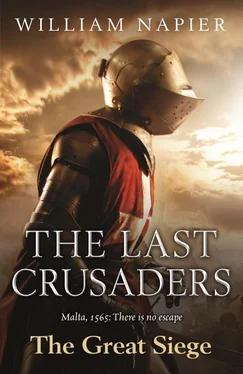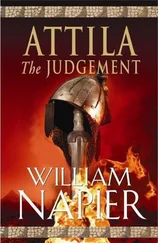William Napier - The Great Siege
Здесь есть возможность читать онлайн «William Napier - The Great Siege» весь текст электронной книги совершенно бесплатно (целиком полную версию без сокращений). В некоторых случаях можно слушать аудио, скачать через торрент в формате fb2 и присутствует краткое содержание. Жанр: Исторические приключения, на английском языке. Описание произведения, (предисловие) а так же отзывы посетителей доступны на портале библиотеки ЛибКат.
- Название:The Great Siege
- Автор:
- Жанр:
- Год:неизвестен
- ISBN:нет данных
- Рейтинг книги:5 / 5. Голосов: 1
-
Избранное:Добавить в избранное
- Отзывы:
-
Ваша оценка:
- 100
- 1
- 2
- 3
- 4
- 5
The Great Siege: краткое содержание, описание и аннотация
Предлагаем к чтению аннотацию, описание, краткое содержание или предисловие (зависит от того, что написал сам автор книги «The Great Siege»). Если вы не нашли необходимую информацию о книге — напишите в комментариях, мы постараемся отыскать её.
The Great Siege — читать онлайн бесплатно полную книгу (весь текст) целиком
Ниже представлен текст книги, разбитый по страницам. Система сохранения места последней прочитанной страницы, позволяет с удобством читать онлайн бесплатно книгу «The Great Siege», без необходимости каждый раз заново искать на чём Вы остановились. Поставьте закладку, и сможете в любой момент перейти на страницу, на которой закончили чтение.
Интервал:
Закладка:
‘Let the people know this for certain,’ said La Valette, turning sharply to Oliver Starkey. ‘The Turks want terms. It means they fear they may not be able to beat us. Let the town know. Let it put the fire back in their hearts.’ He snapped back to the slave. ‘And if we do not depart from this our island, gifted to us by the Emperor Charles himself?’
The slave looked anxious in the extreme. ‘Then, then your fate will be that of your slaughtered comrades at Elmo, now,’ he gulped, ‘now in the hell of the Unbelievers.’
La Valette towered over him. ‘Where?’
‘In the hell,’ he stammered, ‘of, of — ’
‘You say that our Christian brothers burn in hell?’
The old wretch fell to his knees, whimpering and cowering, well used to heavy blows. ‘Not I, master, I beg you, not I, I but carry the message …’
La Valette turned from him in disgust. A man whose spirit had leached away with his youth.
‘And then what?’ he murmured, more to himself than the slave. ‘The Turks will come on to Sicily soon enough, and then that island too will be a part of the Caliphate. As Rhodes is now.’ He turned back. ‘And then Rome, yes? Venice, and Genoa, and Marseilles, and inland, all of Western Europe. Another army will swarm over the Danube frontier, and all of Christendom will be a part of the Empire of Islam, and Christians once more reduced to servile dhimmi status, taxed and spat on and beaten in the streets, as Jews and Christians are today throughout the East.’ His voice trembled. ‘Where then will we go with our Bible and our Cross? Will the Turk gracefully allow us to depart for the New World, do you think? Or perhaps the Moon?’
The slave trembled and said nothing.
‘I reject the offer of Mustafa Pasha,’ said La Valette. ‘Here we take our stand. On this bare rock.’ He tapped the stone flag with his foot. ‘Here.’ He flicked his fingers at a soldier. ‘Take him away and hang him.’
‘No, master, mercy!’ cried the old wretch.
Even the soldier hesitated. It was a cruel order.
La Valette considered, his thoughts dark and labyrinthine, comprehending the power of every threat and counter threat, every gesture, small and great, and above all, the desperate straits of Malta.
‘Bandage his eyes and lead him back to the Gate of Provence,’ he said. ‘Take him up on the walls. I will follow.’
The old slave was dragged back to the walls and held at the very tottering edge, in sight of the Turks, and the bandage torn away. He stared down into the deep ditch far below.
‘Mark it well,’ said La Valette.
The old man looked up the Grand Master with his wrinkled toothless mouth agape, and then down again into the ditch.
‘The Turks will never take this place,’ said La Valette. He fixed his ice blue eyes on the shaking slave, gripped by the arms between the two soldiers. ‘Return to Mustafa and say this. Tell him he may have possession of the ditch below, with our most heartfelt blessing, to lay the dead bodies of his Janizaries in. Beyond that — he will have nothing.’
The slave went back to the Ottoman camp, walking awkwardly, for he had dirtied his breeches.
Mustafa’s anger would be terrible. But not so terrible as the ice blue eyes and the even voice of that Grand Master. A sincere madness burned in him.
Mustafa heard, rolled up a map, looked out of the door of his pavilion and said, ‘When we capture Birgu and Senglea, every man, woman and child there will die. La Valette has sentenced them to death.’
Among the townspeople there was murmuring and lamenting, but no revolt. They had always been governed by distant aristocrats, Maltese and Spanish and now Hospitaller. And the Grand Master had now decreed that they must fight.
With all their ancient peasant fatalism they sighed, ‘So be it,’ and set to sharpening their billhooks and scythes.
Out across the island, over the arid plateau, in the coastal ravines and in the shadows of the devastated and fire-blackened villages, the people of Birgu heard rumours that their brothers were already waging war. The magical, talismanic name of Tonio Bajada, folk hero to some, bandit to others, was leading a group of partisans, harrying the Turkish patrols wherever they could. Rumour said that another band of partisans had caught one Turk, isolated from his squad, cut off his head and replaced it with that of a pig. They had left him sitting up against a dry stone wall for his comrades to find. Minutes later the Turkish patrol came by, and their howls of execration were a delight to the ear.
In another village, still sparsely inhabited, they caught an Italian renegade who was working for the Turks, keeping lookout on the headland. They tied him to the tail of a mule, and some children beat him to death with sticks. Even as he lay dying in a pool of his own blood, he told them, ‘If not today, tomorrow will be your last.’
‘Yah! Yah! Yah!’ the children sang round him.
‘This will be a most brutal encounter,’ said Franco Briffa, head bowed. ‘I will kill Turks with my bare hands if I have to. They have come to my island, I did not invite them, and they have come bearing arms. Yet already my islanders are turning brutal, recounting such tales with glee, of pigs’ heads, and desecrations, and child executioners. Already my friend, the bastard Anton Zahra, talks of how he is longing to take Mohammedan scalps, and show them to his grandchildren one day. Even if we do survive’ — he looked up and fixed his eyes hard on Nicholas — ‘like any who engage in killing, we will leave something of our Christian souls behind us. In ashes and tatters.’
La Valette had been uncharacteristically hesitant about giving another defensive order, in case it struck dread into the people. But then he decided it must be done, and he ordered all streets nearest to the landwalls to be barricaded at regular intervals, and cul-de-sacs formed as entrapments. The people understood immediately what it implied. The Grand Master and the knights were expecting the Turks to break in through the walls soon enough, and desperate hand-to-hand fighting to take place in every street.
They did not lose heart. Nicholas and Hodge watched, deeply moved, as the people of this poorest, most barren of islands dragged forth from their houses what little furniture and possessions they had, chairs and tables and ancient linen chests, smashing some of them into spars and timbers. Then they nailed them up into makeshift fencing, preceded by sets of three or four spars lashed together in the centre with strong rope to form a kind of jack or caltrop, of the kind used to trip up horses in former times. Some even took picks and poleaxes to their own outhouses and piggeries and stableblocks, and dragged the stones into the street to make further barricades. They created narrowing funnels into squares and courtyards without exits. They worked through the heat of the midday sun, half naked and sweating, coughing, plastered in dust, without one murmur of complaint.
Knights watched them at these peasant labours, and said among themselves that these low-born people over whom they had haughtily ruled for decades, barely noticing them, were in some ways as brave as crusaders. They began to say that it would be an honour to fight for them.
‘To fight with them, you mean,’ said Stanley. ‘To fight alongside them.’
Nicholas was in the courtyard, sewing up his battered leather jerkin. He glanced up and there was Maddalena standing before him, her hands folded. She was annoyed that he had not paid her more attention.
‘In my country,’ she said, ‘girls must insult the boys they like very strongly. It is a custom.’
He looked down again at his work. ‘Flirting, we call that,’ he said. ‘The village girls do that in my country too.’
Читать дальшеИнтервал:
Закладка:
Похожие книги на «The Great Siege»
Представляем Вашему вниманию похожие книги на «The Great Siege» списком для выбора. Мы отобрали схожую по названию и смыслу литературу в надежде предоставить читателям больше вариантов отыскать новые, интересные, ещё непрочитанные произведения.
Обсуждение, отзывы о книге «The Great Siege» и просто собственные мнения читателей. Оставьте ваши комментарии, напишите, что Вы думаете о произведении, его смысле или главных героях. Укажите что конкретно понравилось, а что нет, и почему Вы так считаете.












